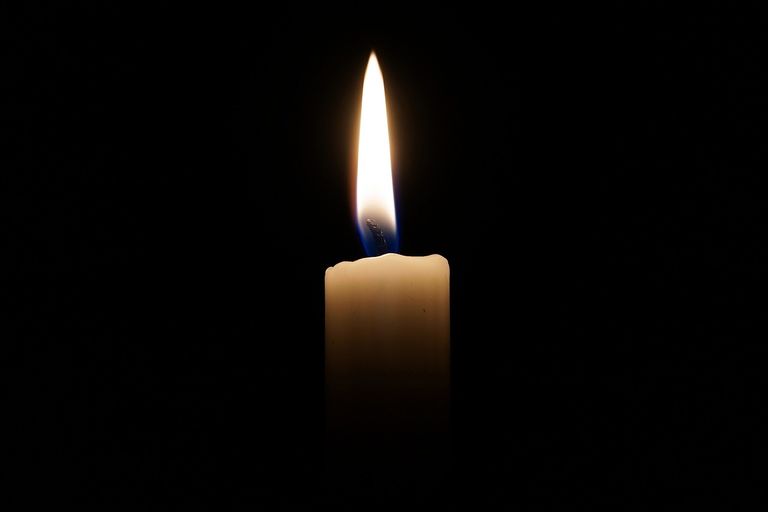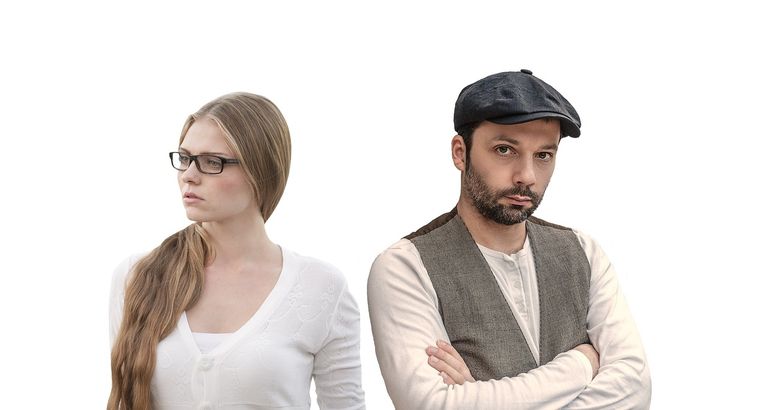The concept of the "wicked heart of man" has been a recurrent theme in literature, philosophy, and religion throughout human history.
It suggests that humans possess an innate capacity for malevolence and wrongdoing. While this idea might sound bleak, it raises important questions about human nature, ethics, and the factors that drive individuals to commit morally questionable actions. In this article, we will explore the idea of the wicked heart of man and its implications for our understanding of human behavior.
The Historical Perspective
Throughout history, numerous thinkers and religious traditions have grappled with the idea of the wicked heart of man. In Judeo-Christian theology, for example, the concept of original sin implies that all humans are born with a sinful nature, inheriting the disobedience of Adam and Eve. This notion has had a profound influence on Western thought, shaping our understanding of the human condition and the need for redemption.
In contrast, philosophers like Thomas Hobbes believed that humans, in their natural state, are driven by self-interest and the pursuit of power, leading to a chaotic and potentially wicked society. This pessimistic view of human nature has also left a significant imprint on our understanding of human behavior.
Psychological Insights
Modern psychology offers valuable insights into the wicked heart of man. Researchers have explored the dark aspects of human nature, such as aggression, prejudice, and unethical behavior. They have found that factors like social conditioning, situational pressures, and individual differences play crucial roles in shaping human behavior.
The famous Stanford prison experiment conducted by Philip Zimbardo and the Milgram obedience studies led by Stanley Milgram both shed light on the capacity of ordinary individuals to engage in morally questionable actions when placed in certain situations. These studies highlight the malleability of human behavior and the potential for individuals to act against their moral compass under certain circumstances.
Nature vs. Nurture
The question of whether the wicked heart of man is an inherent trait or a result of external influences remains a subject of ongoing debate. Some argue that human beings have a natural inclination toward selfishness and cruelty, while others maintain that environmental factors, upbringing, and societal norms have a more significant impact on human behavior.
One perspective, known as the interactionist view, suggests that both nature and nurture interact to shape human behavior. This view recognizes that individuals have the potential for both virtuous and wicked actions, and it is the interplay between their intrinsic predispositions and external influences that determines their behavior.
The idea of the wicked heart of man raises profound questions about the nature of humanity. While historical and philosophical perspectives have often portrayed humans in a negative light, modern psychological research provides a more nuanced understanding of human behavior. It suggests that our actions are influenced by a complex interplay of inherent tendencies, external circumstances, and societal factors.
Ultimately, the concept of the wicked heart of man invites us to reflect on the nature of good and evil, the influence of our surroundings, and our capacity for both virtue and vice. It challenges us to strive for a better understanding of human nature and to create a society that encourages the development of the better angels of our nature while guarding against the darker aspects that may lurk within us all.
Tale of Wickedness in an African Home
In a quiet village nestled in the heart of Africa, there lived a family that appeared to be a model of harmony. On the surface, they were like any other family, with a humble thatched-roof hut, a loving husband, a diligent wife, and their children. Yet, beneath this facade of domestic bliss, a wicked relation festered like a dark storm.
Meet Ngozi, the seemingly devoted wife and mother. She was admired by her neighbors for her culinary skills, her immaculately kept home, and her pleasant demeanor. Her husband, Chijioke, was a hardworking farmer, known for his unwavering dedication to his family.
However, not all was as it seemed. Ngozi held a secret that poisoned the harmony of their home. She had developed a bitter jealousy towards her own children. In her eyes, they were the cause of her lost youth and the source of her unfulfilled dreams. Her wickedness manifested in subtle ways, as she berated her children for their failures, real or perceived.
Her eldest daughter, Kemi, felt the sting of her mother's wickedness most acutely. Ngozi constantly reminded Kemi of her own beauty and youth, lamenting the life she could have had if not for the demands of motherhood. She sowed seeds of insecurity in Kemi's mind, eroding her self-esteem.
Kemi's younger brother, Obi, was not spared either. Ngozi compared him unfavorably to his father, insisting he would never be as strong or hardworking. These hurtful words weighed heavily on Obi's young shoulders, making him question his own worth.
The family's once-happy home had become a place of tension and resentment. The darkness in Ngozi's heart cast a long shadow over their lives, and it was evident to all who knew them that something was amiss.
Chijioke, though hardworking and kind-hearted, remained blind to his wife's wickedness. He believed in preserving the sanctity of their home and was ignorant of the emotional wounds that were slowly but surely tearing their family apart.
As the years passed, Kemi and Obi grew into young adults, and the wickedness they endured began to take its toll. Kemi struggled with self-esteem issues, while Obi's confidence and aspirations were stifled. Their home, once a place of refuge, had turned into a battlefield of emotional scars.
The villagers watched, troubled by the transformation of the family they had once admired. They could sense the wickedness that had taken root in their home but felt powerless to intervene.
This tale serves as a cautionary reminder that wickedness can reside in the most unexpected places, even within the confines of a seemingly loving home. It reminds us of the importance of addressing our inner demons, seeking help when needed, and safeguarding the bonds that unite us as families and communities. For in recognizing the shadows, we can work to bring the light of love, understanding, and forgiveness back into our lives, dispelling the wickedness that threatens to tear us apart.






Upvoted. Thank You for sending some of your rewards to @null. Read my last post to make sure that BLURT burning is profitable for you
** Your post has been upvoted (13.93 %) **
Curation Trail is Open!
Join Trail Here
Delegate more BP for bigger Upvote + Daily BLURT 😉
Delegate BP Here
Upvote
https://blurtblock.herokuapp.com/blurt/upvote
Thank you 🙂 @tomoyan